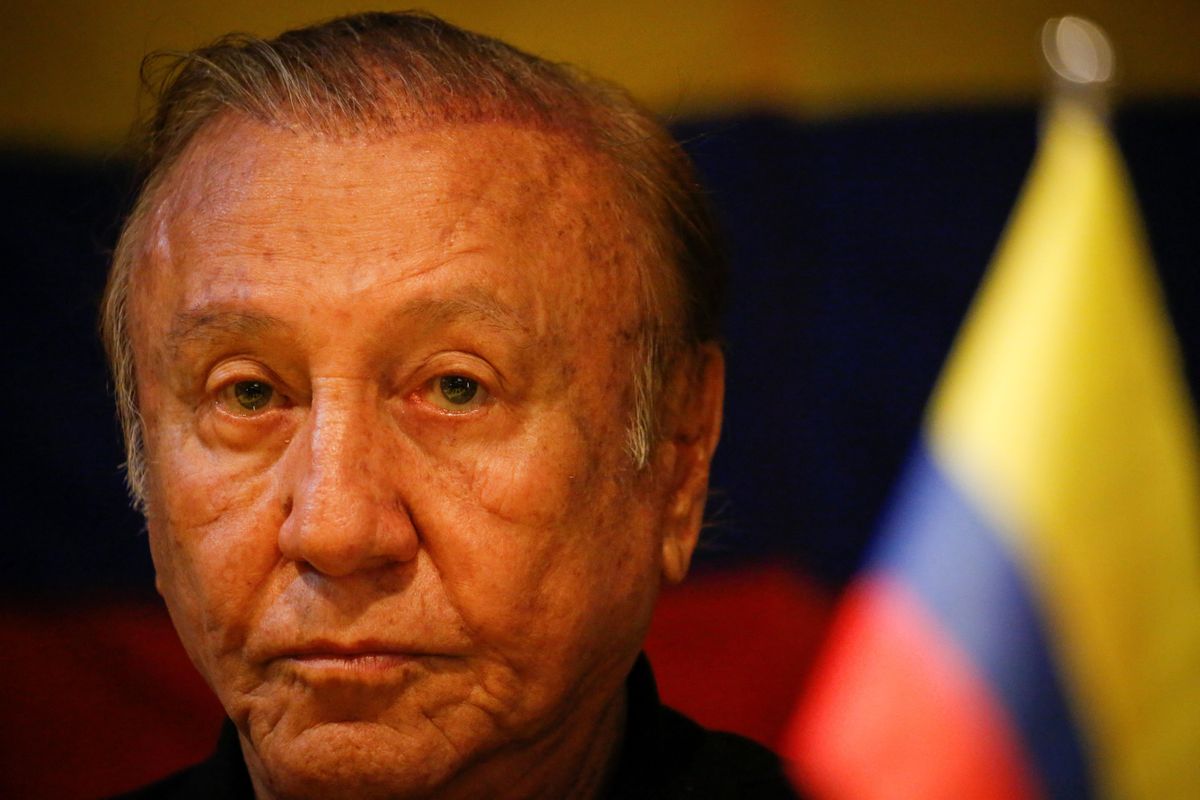The second round of Colombia’s presidential election on June 19 will pit leftist Senator Gustavo Petro against populist businessman Rodolfo Hernández. While Petro would represent big structural change from the conservative establishment that has governed the country for decades, Hernández would represent a change in the way politics are done. Petro, a three-time presidential candidate and prominent critic of the current administration of President Iván Duque, had initially appeared likely to run away with the election. But Hernández, a newcomer to the national political stage, came on strong in the late stages of the campaign and finished a close second to Petro in the 29 May first round of the election.
We spoke to Eurasia Group analyst Sara Torres Raisbeck to find out a little more about who Hernández is, and what Colombia might look like if he wins.
Who is Rodolfo Hernández?
The 77-year-old Hernández, a construction magnate, served as the mayor of a medium-sized city called Bucaramanga from 2015-to 2019. He is running for president on an anti-corruption and anti-establishment platform. The son of farmers, he got a degree in civil engineering and built a successful business that focused on urban housing for low- to middle-income residents. He has three sons and a daughter. His daughter disappeared in 2004 after she was allegedly kidnapped by the National Liberation Army, a Marxist guerilla group.
In a shift from the traditional practice of organizing campaigns around public events, the plain-spoken (and sometimes profane) Hernández has built support for his candidacy with TikTok videos — he calls himself the “King of TikTok” — and online outreach. He has said he has financed the operation himself and has a staff of just 13 people, most of whom are under the age of 30.
As mayor of Bucaramanga, Hernández was popular, leaving office with an 84% approval rating. That’s despite the fact that he was suspended from office twice: once for slapping a local council member and another time for endorsing his chosen successor, which is not permitted in Colombia. On the second occasion, he decided to quit and was replaced by his chief of staff.
Moreover, Hernández is under indictment for unlawful favoritism in the award of contracts for garbage collection in Bucamaranga when he was mayor and has been charged.
What are his politics?
Hernández shows both libertarian and social-democratic streaks. He wants small government and less regulation of businesses, but he has also made progressive proposals, such as legalizing narcotics, supporting adoption by same-sex couples, opposing fracking, and implementing protectionist measures to help the agricultural sector.
Hernández has drawn comparisons to Donald Trump — why is that?
Both are wealthy businessmen who abhor political correctness and say the establishment is inherently corrupt. Also like Trump, Hernández has shown a disdain for political processes and existing institutions. He has said he would declare a state of emergency on his first day in office to allow him to rapidly push through measures such as the closure of 27 Colombian embassies abroad and the reduction of legislators’ salaries. He has also said that he admires Latin American populist leaders such as El Salvador’s Nayib Bukele and Mexico’s Andrés Manuel López Obrador. Both campaigned on anti-corruption platforms and, once in office, tried to concentrate more state power in their own hands.
What are his chances against Petro?
The runoff will be very tight. Both candidates appeal to an electorate suffering from economic malaise and deep discontent with the political status quo. Petro wants to radically expand the social safety net and raise taxes on the wealthy, while Hernández proposes changes in the way government works. He says he would approach the presidency in the same way a CEO manages a company, focusing on results and cost-effectiveness. Hernández, in addition, can appeal to conservative and moderate voters who see Petro as too leftist.
However, some of Hernández’s novelty may be wearing off as his liabilities come under greater scrutiny. Petro is — somewhat unexpectedly after years of being an opposition leader — positioning himself as someone who will preserve the country’s relatively strong institutions. Hernández, Petro says, is a jump into the unknown.
What would a Hernández administration mean for Colombia?
It would represent a very new way of doing things. As mayor of Bucaramanga, Hernández sought to fill offices with technocrats as opposed to political appointees, and he sought to make the awarding of public contracts more competitive and transparent.
He has repeatedly said there are many subjects he is unfamiliar with, so he would rely on a team of technocrats to make decisions. Yet the legislative process would likely be gridlocked owing to Hernández’s lack of representation in congress. His political movement Anti-Corruption League holds just two of the 172 seats in the lower chamber of congress and his confrontational stance toward traditional politicians would complicate his ability to build new bridges.
If he wins the presidency, his garbage-related corruption case would pass to the Accusations Committee in Congress, which could in principle oust him from office — leaving his Vice President Marelen Castillo as president.
Is there any aspect of Hernández's candidacy that you think isn't being covered well enough by international media?
Hernandez’s technocratic approach to governance and focus on results doesn’t get enough focus. Members of his staff when he was the mayor of Bucaramanga recently issued a statement highlighting his achievements in office there. They said Hernández expanded the average number of companies bidding on public contracts from 1.4 companies to over 40, reduced the city’s debt to zero, and reactivated social investment projects that had languished under previous mayors. Moreover, he placed women in most of the key decision-making positions, including those of secretary of finance, infrastructure, security, and transport.
In a word, what is the choice that Colombians are being asked to make this Sunday?
Change.






